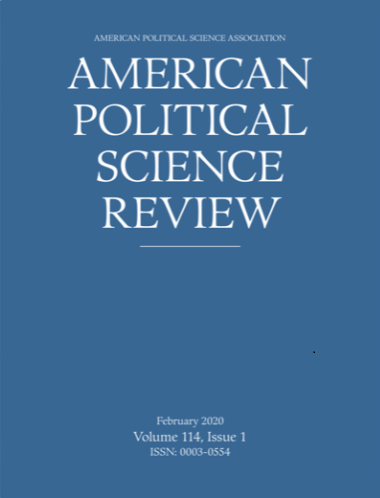语言的丰富:为什么德国的边缘地区会投票给激进的右翼
IF 5.9
1区 社会学
Q1 POLITICAL SCIENCE
引用次数: 5
摘要
为什么激进右翼在某些地区的支持率高于其他地区?本文认为,在以前的研究中,经常被归类为激进右翼支持的“农村”基础的部分原因是不同的:在现代民族国家形成的中心-边缘冲突中,处于历史“边缘”的社区。受经典的国家建设文献的启发,该文献强调“丰富的语言”——或一个地区的非标准语言方言——作为边缘的定义,我们使用了德国一项语言调查中超过72.5万个地理编码的回答数据,表明历史上边缘地理社区的选民今天更有可能投票给激进的右翼。本文章由计算机程序翻译,如有差异,请以英文原文为准。
Wealth of Tongues: Why Peripheral Regions Vote for the Radical Right in Germany
Why is support the radical right higher in some geographic locations than others? This article argues that what is frequently classified as the “rural” bases of radical-right support in previous research is in part the result of something different: communities that were in the historical “periphery” in the center–periphery conflicts of modern nation-state formation. Inspired by a classic state-building literature that emphasizes the prevalence of a “wealth of tongues”—or nonstandard linguistic dialects in a region—as a definition of the periphery, we use data from more than 725,000 geo-coded responses in a linguistic survey in Germany to show that voters from historically peripheral geographic communities are more likely to vote for the radical right today.
求助全文
通过发布文献求助,成功后即可免费获取论文全文。
去求助
来源期刊

American Political Science Review
POLITICAL SCIENCE-
CiteScore
9.80
自引率
5.90%
发文量
119
期刊介绍:
American Political Science Review is political science''s premier scholarly research journal, providing peer-reviewed articles and review essays from subfields throughout the discipline. Areas covered include political theory, American politics, public policy, public administration, comparative politics, and international relations. APSR has published continuously since 1906. American Political Science Review is sold ONLY as part of a joint subscription with Perspectives on Politics and PS: Political Science & Politics.
 求助内容:
求助内容: 应助结果提醒方式:
应助结果提醒方式:


